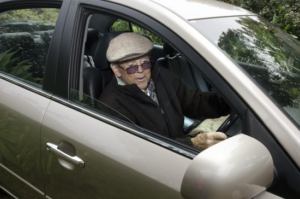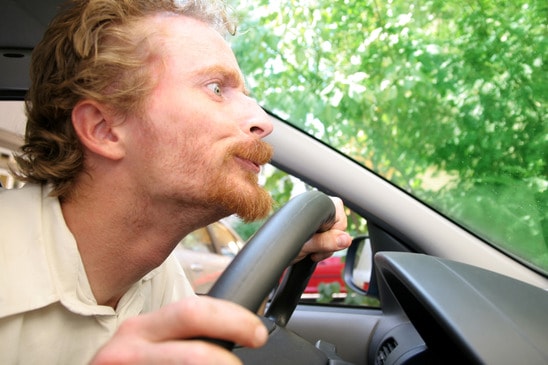A recent report suggested that quieter electric cars pose a silent hazard to pedestrians—especially blind pedestrians. According to the Daily Mail, pedestrians are 40% more likely to be struck by a quiet hybrid or electric car. Blind pedestrians and their guide dogs are most at risk because they cannot perceive a vehicle they cannot hear.

It is important to consider how these facts affect contributory negligence laws. Under Idaho’s contributory negligence law, injured individuals are only allowed to make a personal injury claim if they are 49% or less at fault for an accident. One of the first things a personal injury attorney in Boise, Idaho will consider in an accident claim is liability or degree of fault. If quieter cars make it more difficult for pedestrians to perceive a car coming, then these cars will place a greater burden of safety on the driver. Some have argued that quieter cars should be equipped with noise-making devices in order to keep pedestrians safe.
Drivers have an added responsibility to stop for blind pedestrians crossing the street. According to Idaho law, drivers must always yield right of way to a blind pedestrian carrying a cane or walking with a guide dog—regardless of where the pedestrian is located.
Yet, these progressive laws have not always been in place.
In a fascinating article written for the National Federation for the Blind, contributory negligence laws once placed the burden of responsibility in an accident on the blind person solely—regardless of whether the driver had obeyed traffic laws or not. The blind person was considered negligent for venturing out alone. These laws seriously limited blind individuals’ right to independence and free movement. More progressive laws are in place, including white cane laws that require drivers to yield to blind pedestrians. These laws were milestones in blind civil rights.
Yet, according to the National Federation for the Blind, the idea that blind pedestrians are unsafe travellers hasn’t been completely been removed from the cultural lexicon. For instance, one writer argued that the pure assumption that the driver is always responsible in an accident with a blind pedestrian is based on the erroneous idea that a blind person is unable to take personal responsibility for his or her safety. It is a dangerous idea to assume that drivers must take sole responsibility for blind safety because a blind person cannot “take care of himself or herself.” This is ableism at its worst.
Of course, the opposite extreme is just as dangerous. Despite white cane laws, blind individuals still sometimes receive criticism and sanction for venturing out alone.
At the end of the day, the report by the Daily Mail raises sobering questions about the danger of hybrid vehicles to all pedestrians. While blind pedestrians may be the most greatly affected, we must remind ourselves that all pedestrian safety is in question with these silent vehicles. While this is an accessibility issue, this is also a societal issue about how pedestrians and drivers use public roads and spaces.
If you’ve been injured as a pedestrian, it is important to understand your rights. The Law Office of Johnson & Lundgreen are car accident attorneys located in Boise and Nampa, Idaho. We work closely with accident victims and their families to ensure that justice is served.

